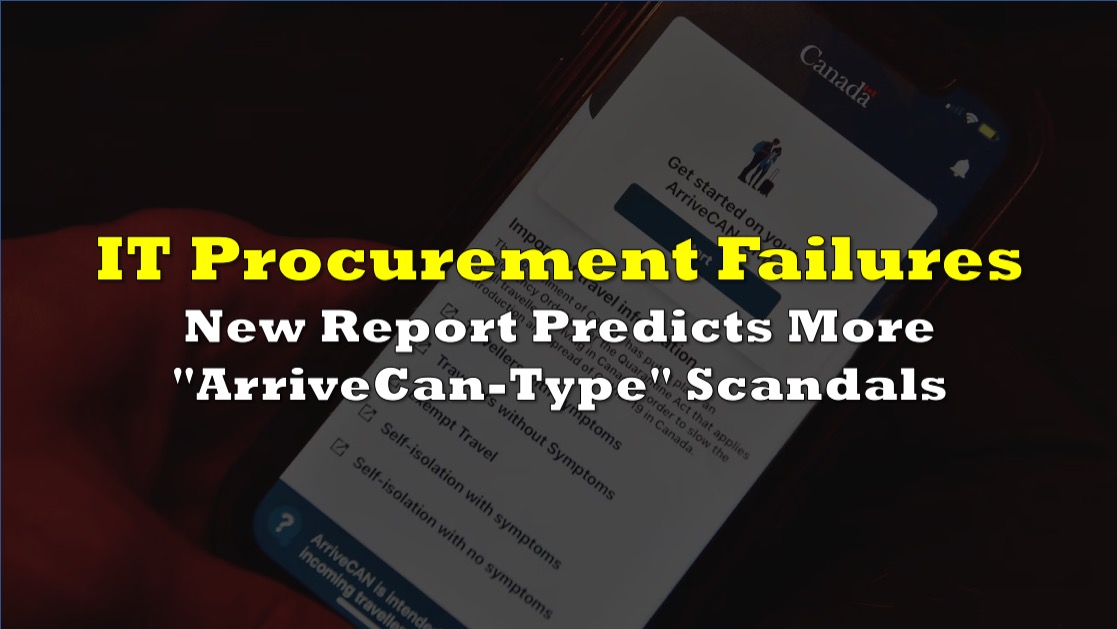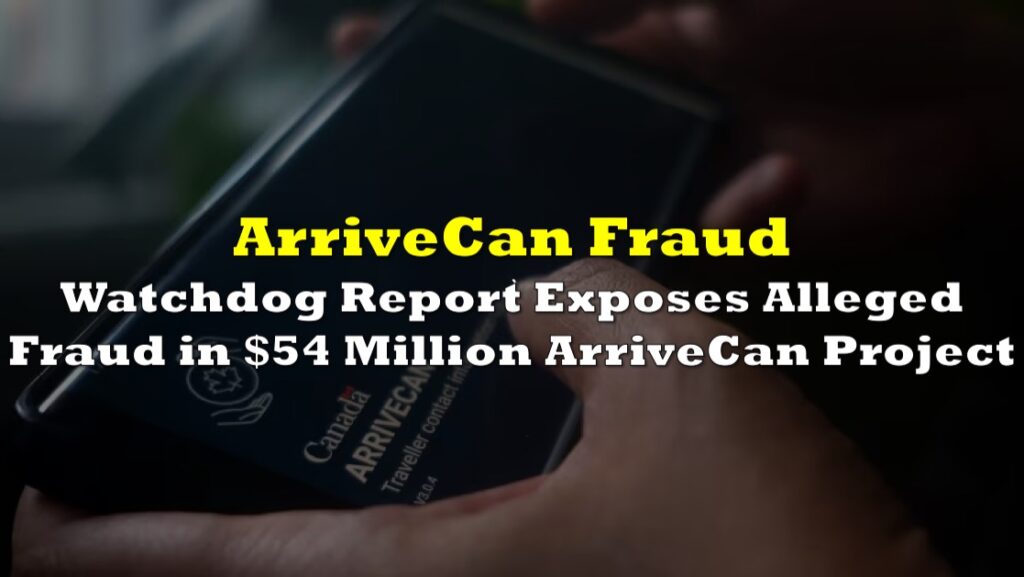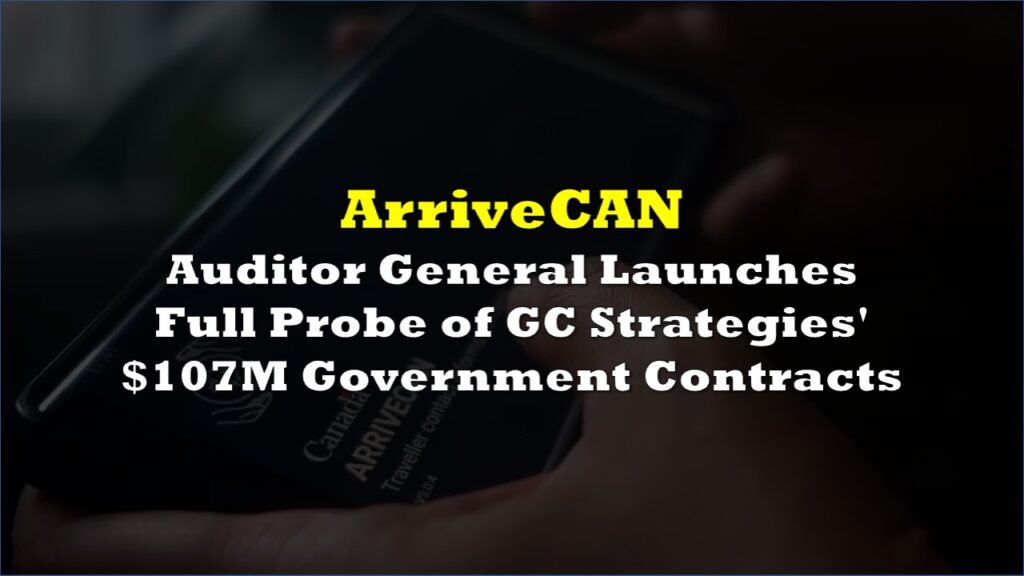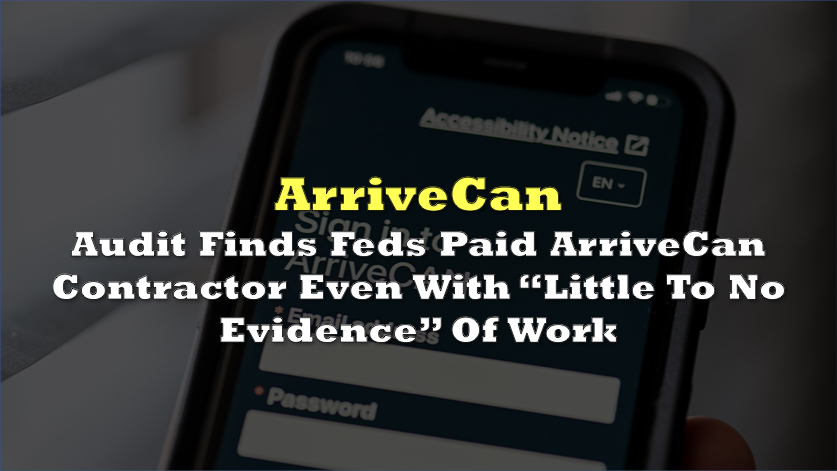A new report has highlighted critical shortcomings in the Canadian federal government’s IT procurement practices, predicting that without significant reforms, more scandals like the controversial ArriveCan application are inevitable.
This comes following the Royal Canadian Mounted Police (RCMP) recently raiding the home of a top contractor for the ArriveCan app, GC Strategies, which was paid nearly $20 million for its services.
The research paper, co-authored by Carleton University associate professor Amanda Clarke and former federal public servant Sean Boots, reveals that the government’s IT procurement processes violate nearly every globally accepted best practice. The findings emphasize the need for immediate and substantial changes to prevent future debacles.
“The federal government breaks almost all globally accepted best practices for modern public sector IT procurement, a reality which we argue helps explain why we have scandals like the ArriveCAN debacle that’s still unfolding,” Clarke stated in the paper. “More importantly, we argue that unless we reform federal IT procurement so that it gets up to speed with widely accepted best practice in the field, any attempts to drive forward meaningful digital reform in the Government of Canada are bound to fail.”
More $60 Million ArriveScam Debacles Likely
— Larry Brock (@LarryBrockMP) July 5, 2024
New report says more government contracting waste & abuse is likely.
The RCMP raided the home of top ArriveScam contractor GC Strategies, paid nearly $20 million.
RCMP is investigating Trudeau's ArriveScam. pic.twitter.com/u7KHdNYacN
The report identifies several key issues, including overly long and costly contracts, a lack of supplier variety, failure to prioritize open-source software options, and the granting of intellectual property rights to companies developing government products. The study also highlights a “dearth of in-house competency,” with some federal departments employing more IT contractors than in-house staff.
The report estimates that since 2017-2018, nearly a quarter of the government’s $20 billion IT contract expenditure has gone to three firms: IBM Canada, Bell Canada, and Microsoft Canada. This concentrated spending and repeated mistakes have led to high-profile failures like the Phoenix pay system and the Canada.ca project.
In an interview, Clarke expressed skepticism about current reform efforts. “I haven’t heard anything concrete about whether or not we’re going to see mandated open source, whether or not we’re going to change rules that right now favour vendor ownership of IP… we haven’t heard anything about an interest in bringing in concrete IT spend controls,” she said. “You’re probably going to see more ArriveCan-type debacles, certainly you’re going to see more of these bound-to-fail projects.”
The paper draws comparisons to other countries, noting that Canada significantly lags behind in online service delivery. Clarke pointed out that despite promises, Canadians still cannot apply for a passport online, while countries like Ukraine, even amidst war, have better digital services due to smart digital infrastructure investments.
Spending on IT services in Canada has surged, with software licensing costs rising by 50% to $1.08 billion and IT consulting services jumping from $1.17 billion to $1.82 billion between 2017-2018 and 2021-2022. The report indicates that this trend is unsustainable without reforms.
The study proposes several solutions, including imposing a maximum IT contract threshold of $2 million per year and limiting contract lengths to three years with no extensions. Clarke also emphasized the need to hire proven technology leaders with successful track records to senior leadership positions.
“If you don’t give them power, they’re just going to get ushered away with the other government house elves, and they’re going to leave because they’ll be completely unfulfilled, and they could make much more money elsewhere,” she warned.
Clarke cautioned against overly simplistic solutions, such as cutting all IT consulting spending suddenly, as this could result in further issues. Instead, she advocates for a balanced approach with strict spending controls and competent leadership to steer the government towards more effective IT procurement and service delivery.
Back in February, a report to Parliament by the Auditor General highlights troubling management and contracting practices in the development and implementation of the ArriveCAN app, saying it is “impossible to determine the actual cost of the application.” The findings point to significant shortcomings in project management, transparency, and accountability, raising concerns about the efficient use of taxpayer dollars.
Information for this story was found via National Post and the sources mentioned. The author has no securities or affiliations related to the organizations discussed. Not a recommendation to buy or sell. Always do additional research and consult a professional before purchasing a security. The author holds no licenses.









